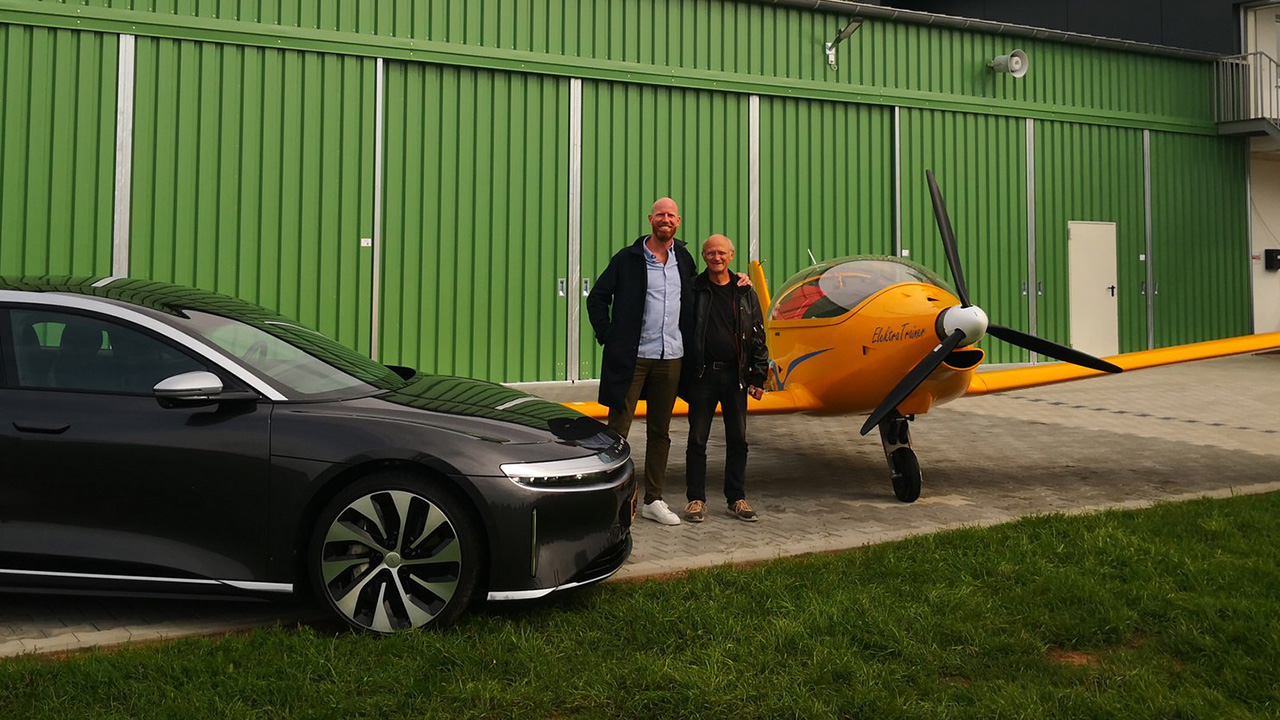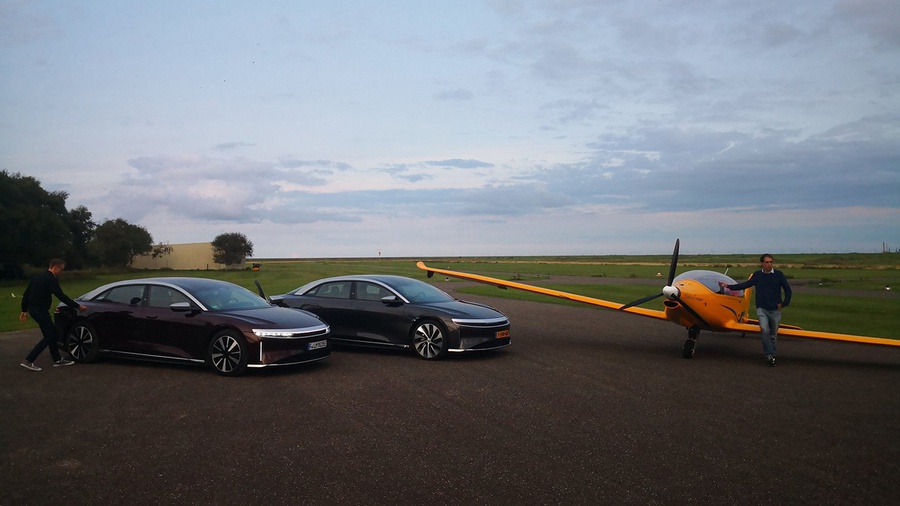The event organizers selected these particular competitors to face off on a course designed to replicate the existing world record for electric flight distance. This world record was established by a Pipistrel Velis Elektro in 2020. The aircraft needed three days and 11 recharge stops to complete a 200-kilometer flight, with each airtime session lasting 30 minutes.
Jumping to 2023, Elektra Solar and Lucid Motors aimed to complete the same distance in one day. It should be noted that even in 2020, an electric car could have completed this distance in a single day.
The catchphrase for the event was "Factor 5 in 3 years," emphasizing the advancements in electric technology and range for both cars and aircraft over the recent years.
The race commenced on August 29, starting from Gelnhausen in Hesse and ending on the North Sea island of Norderney. The car took the road, while the plane took to the skies. Organizers had factored in variables like road congestion and aerial headwinds, as well as possible diversions or airspace restrictions, believing these would make the race equitable for both competitors.
Lift off! Start of #EFlightChallenge2023 from Gelnhausen (Frankfurt) to Norderney. Let's see who will be first at Norderney @LucidMotors @ewrflight @Elektro_Robin @4x4electricnl @ChrstnWhrht pic.twitter.com/IOsO5fk5Lt
— Morell Westermann (@morellwest) August 29, 2023
Ultimately, the Lucid Air narrowly edged out the Elektra Trainer. The car reached Norderney about 30 minutes ahead of the plane. The critical element was the ferry: the Lucid Air got there just three minutes before it departed and with only a few kilometers of range left. Had the car needed to pause for recharging, which would have been necessary per the race rules, the electric plane likely would have won.
Source: Electrive


